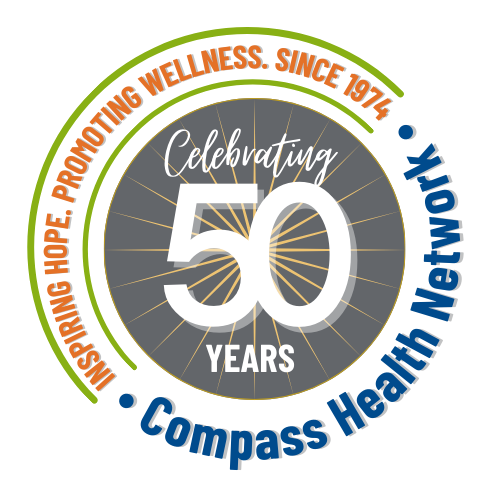
Which Health Services Are a Part of Primary Care?
Which Health Services Are a Part of Primary Care?
Did you know that a growing number of Americans are declining primary care? According to a recent survey, more than 100 million Americans are not seeing a primary care physician (PCP). Even more alarming is that roughly 25 million are children.
This means that these individuals are putting off preventative medicine. Instead, they are reactive and waiting to get sick. Ultimately, this leads to negative health outcomes and costlier bills.
Read on for a comprehensive guide to primary health care. Explore what health services are included in primary care and why family medicine is so important to overall health.
What Is Primary Health Care?
A PCP is a medical doctor that handles your overall health. PCPs are also synonymous with family medicine. Many families visit the same doctor together, whether they are an adult or a child.
PCPs see patients for common illnesses. If you have the flu or an infection, a PCP is your first line of defense.
After an evaluation, the PCP determines if they can treat you or if a specialist is necessary. In cases where a specialist is necessary, your PCP refers you to another doctor or practice.
PCPs also handle your preventative health care. They are responsible for following the recommended vaccination schedule.
In children, they check weight and height to make sure the child is growing properly. Vaccinations are administered at the PCP’s office.
Topics like behavioral health and even dental care are covered at your regular checkup. The point is to pre-emptively identify any issues and direct the family to a specialist that can treat it.
What Health Services Are Offered by Your Primary Care Physician?
PCPs are like a jack of all trades in the medical community. They are responsible for your overall health and have vast knowledge of the human body.
If you’re sick with bacterial or viral ailments, a PCP can help. They check your heart, lungs, ears, and throat to find the potential cause.
Your PCP is going to order blood work as part of your preventative care. Here, they check your glucose levels and to make sure your cholesterol is normal. If they find something abnormal, the doctor may prescribe prescription drugs or refer you to a specialist.
They also test for viral illnesses like influenza or Covid-19. To prevent these viruses from taking root, your PCP administers vaccinations and booster shots each year.
PCPs also help you manage chronic conditions. For instance, your family doctor helps you deal with diabetes on a daily basis or even achieve weight loss goals.
As a result of this focus on overall health, there is a direct link between PCPs and life expectancy. The supply of 10 new PCPs in the United States improves life expectancy by more than 51 days.
Your Guide to Primary Health Care
You now understand the importance of primary health care. Regularly seeing a PCP is proven to improve your life expectancy and help your overall health.
If you find yourself interested in seeing a primary care physician in Missouri, contact us today to schedule an appointment.

Everything You Need to Look for When Selecting a Primary Care Doctor
Everything You Need to Look for When Selecting a Primary Care Doctor
Did you know that the United States has the lowest life expectancy among other wealthy nations? On average, Americans are dying at 76 years old. In comparable countries, people are living to at least 82 years old.
One reason is that many Americans are forgoing primary care. A recent report concluded that roughly 100 million Americans do not see a primary care doctor.
You can stay on top of your health by visiting a primary care physician (PCP). Read on to learn about selecting a primary care doctor. Explore tips on how to get the best primary care experience and review options for doctors.
Search Online
You can start your search for a PCP on the internet. Both social media and internet search engines are powerful tools for finding doctors.
Here, you can locate board-certified primary care doctors that offer services near you. In Missouri, for example, you will find health providers like Compass Health Network.
Once you locate a PCP, make sure that they are considered in-network for your health insurance. Reading online patient reviews is also an important step in the process.
You want to select a doctor that is reputable and receives largely positive feedback from the community. While not every client is going to be satisfied, you want to make sure that most are happy.
Verify Credentials
It is wise to verify your health provider’s credentials. You can often do this by reviewing the doctor’s or health network’s website.
The typical physician website has an “About Us” landing page. Select this and learn more about the doctors at the practice.
You can explore where the doctor attended medical school and how long they have been in practice. For larger medical networks, you can research multiple doctors and select one that is most compatible with your preferences.
Compare Costs
Comparing treatment costs is another important step in the process. There are a number of variables that affect the patient’s financial responsibility.
The patient’s health insurance is the primary determiner of cost. Some patients have employer-based insurance, while others use government programs like Medicaid or Medicare.
The best medical providers try to reduce barriers to access. There are still many Americans without health insurance that require care.
For example, Compass Health Network has a sliding fee discount program. They offer this to patients that meet specific requirements for income and family size. Before making an appointment, ask the office about treatment costs based on your situation.
Your Guide to Selecting a Primary Care Doctor
You are now ready to search for and pick a PCP. The doctor that you select should have certain attributes that make them stand out. These characteristics include a positive reputation and sound medical credentials.
Also, it is important that your doctor works within your budget and family’s needs. If you are in the process of selecting a primary care doctor, contact us today to get started at Compass Health Network.

How Do I Find a VA Primary Care Provider
How Do I Find a VA Primary Care Provider
Far too many Americans are putting off their overall health care. Did you know that more than 100 million Americans do not have a primary care provider (PCP)? This means that they are less likely to follow up with specialists, stay current with vaccinations, and focus on a healthy lifestyle.
For America’s veterans, primary care is too important to ignore. They face shorter life expectancies than the average person. For example, female veterans have a life expectancy of just 63 years old.
Read on to learn how to find a family doctor in Missouri. Explore topics such as tips for finding a doctor and how to use VA benefits.
What Is the Mission Act?
Many veterans are under the impression that they need to receive medical care at a Veterans Affairs (VA) facility. While this was true for decades, the passing of the Mission Act in 2018 changed everything.
Veterans can now seek approval to see non-VA doctors. There are a number of eligibility criteria that veterans need to meet before receiving approval.
For example, veterans can seek outside care if their VA facility does not provide a particular service. For female veterans, two examples are maternity care and IVF.
There are also provisions for driving distance and waiting time. If a veteran needs to wait more than 20 days for a visit with VA providers, they can seek outside care. Also, veterans do not need to drive for more than 30 minutes for an appointment.
How to Find Private Doctors for Veterans
Once you receive approval to receive care outside the VA system, it is time to find a doctor. Selecting the right doctor is crucial for your health.
There are common attributes to look for when searching for a doctor. Continue reading for a brief description of each characteristic.
Positive Reputation
A consistent reputation for delivering quality care is critical. Word of mouth is one way to see if a provider has a positive reputation.
The internet is also a powerful tool for validating a friend or family member’s referral. You can read patient reviews on Google or social media. Here, you can learn from other patients’ experiences and avoid facilities with too many poor reviews.
Health Insurance
As a veteran, you do not have private health insurance. Instead, your care falls to the Department of Veterans Affairs.
You cannot just show up at any doctor’s office and expect to receive care. Instead, you need to verify that the healthcare organization takes payment from the VA.
Proper Services
Lastly, you need to verify that the doctors provide the services you are looking for. It is important to set medical goals that you are looking to achieve when seeing a primary doctor.
Some want to reduce their cholesterol while others need to monitor diabetes. Regardless of your medical goal, make sure that this medical provider offers what you need.
Your Guide to Finding a Primary Care Provider
You are now ready to find a PCP in Missouri. There are some important steps like verifying they have a positive reputation and offering the services you are looking for.
If you are looking for a primary care doctor in Missouri, contact us today to schedule an appointment.

Why Are Sports and School Physicals Important Before School Starts?
Why Are Sports and School Physicals Important Before School Starts?
The fall sports season is around the corner and it is time to schedule your annual physical. Did you know that more than 57% of high school students participate in at least one sport?
This means that millions of students are set to play fall sports such as football and soccer. In the medical community, this results in a mad rush to get physicals in during late August.
Do not wait to get your fall sports physical scheduled. Read on to learn why school physicals are so important. Explore how physical exams and medical screenings can detect potential issues in young athletes.
What Is a Sports Physical?
Before diving into its value, it is important to understand what back-to-school physicals are. Here, a medical doctor takes a comprehensive look at a student’s physical and mental health.
Medical professionals start the process by reviewing the student’s history. This includes any existing issues or disclosures of family medical history.
For example, the student may disclose that there is a history of heart disease in their family. As a result, the doctor may refer the student to a cardiologist for an EKG and other heart-related testing.
Once the visit starts, the doctor performs a physical health screening. They are going to carefully inspect the student’s muscles, joints, and bones.
The doctor also checks the child’s lungs and vision. Blood pressure, heartbeat, and pulse are two other important items to monitor.
Many doctors are also adding a mental health screening to the child’s physical. Today, students are under a lot of pressure to perform academically and athletically. For many, it takes an enormous toll and mental health issues emerge due to these pressures.
According to a U.S. Center for Disease Control (CDC) study, roughly 1 in 5 students have a mental health disorder. This figure has increased due to modern challenges like cyberbullying and the Covid-19 pandemic.
A mental health screening can identify feelings of depression and anxiety. Now, the child can receive the help that they need.
What Are the Risks of Delaying a Sports Physical?
Many people wait until the last minute to schedule their sports physicals. This is a mistake for many different reasons.
For starters, your child cannot participate in school sports without a proper physical. If the medical office cannot get you in promptly, your child may miss the start of their season.
Also, sports physicals are an important tool in preventative medicine. In many cases, the doctor identifies a potential medical issue before it becomes a larger problem. Identifying a health issue early allows your child to correct the root cause and get better.
Your Guide to School Physicals
You are now ready to promptly schedule your Missouri sports physical with Compass Health Network. The fall season will be here before you know it.
Make sure to get on the doctor’s calendar before appointments are booked through September. Not only is it a prerequisite for playing school sports, but also an important medical tool for preventative care.
If you are looking to schedule a school physical, contact us today to get on the calendar.

The Importance of Sports Safety and Preventing Injuries for Young Athletes
The Importance of Sports Safety and Preventing Injuries for Young Athletes
The benefits of youth sports are undeniable. A child that’s involved in playing sports is 92% less likely to do drugs and 80% less likely to get pregnant. They’re also 3 times more likely to graduate than non-athletes.
These advantages don’t discount the risks young athletes experience, though. Because sports are physical, the risk of injury is always there.
That’s one reason why injury prevention is key. It’s crucial that both adults and kids know the risks and rewards associated with sports. That way, they can make an informed choice on playing.
Below, we’ll go over basic sports injury prevention tips and how to cope with an injury if it does happen.
General Sports Safety Tips to Know
Sports safety for kids starts with coaching. The right coach is aware of potential risks and is honest about them right away.
Always ask your child’s coach about general safety tips specific to your child’s sport.
Recent reports show that sports injuries are on the rise. UCLA Health found an interesting connection that explains this trend — sports specialization.
There is a link between training volume, intensity, and injury risk. In recent years, more parents have pushed children towards intense, single-sport training. This can lead to repetitive micro-trauma and injury.
To combat this, make sure your child gets rest periods.
Injury Prevention Starts With Awareness and Vigilance
Once you’re aware of the risks of the sport your child wants to play, learn the right way to handle them. Your child’s coach should focus on first explaining the proper technique. This factor will prevent a huge amount of injuries.
Next, your coach should explain the proper conditioning that should take place. Conditioning prepares your child’s body for the sport and protects them from injury.
Finally, the coach should focus on ensuring any equipment is safe, too.
These three factors are the main culprits behind most injuries. If you and your child stay aware of them, then an injury is much less likely.
Coping With Sports Injuries
If your child gets injured, consider seeing a pediatric and family medicine specialist. The sooner you see a doctor, the better for your child.
Listen to your child’s doctor about how to cope with the injury. It’s likely they will need to take time off from their sport of choice. They may even miss some school depending on the extent of the injury.
Risk Versus Reward: Keeping Young Athletes Safe
Child safety when it comes to young athletes is a balancing act. Sports are inherently risky, so you’ll need to do your best to stay aware and vigilant.
Know the signs of injury to watch for, and know what to do if your child does experience a common sports injury.
One important aspect of keeping your child safe is maintaining regular pediatric care. If you don’t already have a regular doctor, then it might be good to establish care when your child joins a sport.
Contact Compass Health Network now to learn more about our services and how we can help.

Nurse Practitioner Week
Nurse Practitioner Week
Nurse practitioner is one of the fastest-growing career fields in the United States. More than 266,000 Americans qualify to serve as a nurse practitioner.
By 2032, this number will increase by a staggering 45%. This growth rate is much higher than the national average.
It comes as no surprise to see the growth in nurse practitioners. This position is critical to the nation’s healthcare system. Without them, life expectancy would certainly decline, and Americans would be sicker.
This week is one to celebrate nurse practitioners and their positive role in health care. Read on to learn all about National Nurse Practitioner Week. Explore topics such as the theme for Nurse Practitioner Week and what the position entails.
What Do Nurse Practitioners Do?
Before diving into NP week, it is important to understand what nurse practitioners do. Nurse practitioners fill the nation’s growing doctor shortage. By 2033, medical experts believe there will be a shortage of up to 139,000 physicians.
Nurse practitioners do many of the same things as primary care doctors. They evaluate patients and diagnose ailments.
Nurse practitioners order and perform diagnostic tests. They evaluate the results of those tests and prescribe medicine or treatments accordingly.
Also, nurse practitioners create patient care plans and follow up regularly to check the progress. They also take and review patient’s medical history to identify potential health risks.
What Is NP Week?
NP Week intends to raise awareness for this critical position. Additionally, organizers seek to remove barriers that prevent nurse practitioners from doing their job to the fullest.
There is still a stigma in the medical industry that only doctors can perform the tasks listed above. However, this thought process is inaccurate and does not reflect a nurse practitioner’s education and training.
By celebrating nurse practitioners, positive attention is brought to the career field. Organizers can instill confidence in nurse practitioners’ capability in patients and medical providers.
What Is the Theme for NP Week?
The theme for NP week is “Recognizing Heroes in Health Care.” To help recognize nurse practitioners, organizers received 46 proclamations from state governors and local elected officials.
Nurse practitioners see more than 1 billion patients per year. They were instrumental during the COVID-19 pandemic as many medical offices and hospitals were overwhelmed with patients.
Nurse practitioners often work in urgent care and other family medicine centers. These facilities received thousands of COVID-19 patients in Missouri alone. Every day, nurse practitioners and other healthcare workers put their lives and long-term health on the line to visit with COVID-19 patients.
Your Guide to Celebrating Nurse Practitioner Week
You are now ready to do your part and spread the word about the incredible role that nurse practitioners play in the healthcare industry.
Compass Health Network relies on nurse practitioners to treat Missouri’s citizens. If you want to help celebrate National Nurse Practitioner Week, contact us today at Compass Health Network to see how you can get involved.

January Is Quit Smoking Month: Here’s How to Take the First Step
January Is Quit Smoking Month: Here’s How to Take the First Step
Tobacco takes over 8 million lives annually. In Missouri, it affects over 1 million adults and kids. No one wants to be a statistic in tobacco-related fatalities.
What if this year, you could shed more than just a few pounds? Think of ditching cigarettes and reclaiming your breath and health. January is the perfect time to start your smoke-free journey because it’s Quit Smoking Month.
Now, quitting smoking can feel daunting. Sure, but don’t worry, you’re not alone. Below are actionable tips on how to quit nicotine:
Find Your “Why”
Before you pack your mental backpack, you need a sturdy motivation. As you think about the reasons to quit smoking, go beyond health benefits. For instance, you can picture yourself running without wheezing, smelling flowers without a scratchy cough, or playing catch with your kids without gasping for air.
Write down your “whys” and stick them on your fridge, mirror, or phone. Have them where you see them constantly. When cravings attack, these personal reminders become your fuel to stop smoking.
Plan Your Escape Route
Start charting your quit-smoking course with a “Quit Smoking Plan.” Pick a quit cigarettes or quit vaping date – January 1st is symbolic, but choose a day that works for you. You should also mark it on your calendar and tell supportive friends and family.
Tobacco-quitting apps, nicotine aids, sugar-free gum, or stress balls can help. You may also plan smoke-free activities like walks or movies. These activities occupy your hands and mind.
Tame the Craving
Depending on your nicotine withdrawal timeline, cravings will roar, but you can outsmart them. When the urge hits, your body is reacting to a lack of nicotine. Instead, practice deep breathing exercises or meditation to calm your nerves and remind yourself how good it feels to have oxygen freely flowing through your lungs.
Celebrate Every Milestone
Quitting smoking is tough, so celebrate every step. Reward yourself for throwing out those cigarettes. You should also acknowledge that with each smoke-free day, you’re conquering cravings, saving money, and reclaiming your health.
You should also share your progress with supportive people. Their cheers will fuel your motivation. Your family members or friends can also help you stay on track to quit tobacco.
Don’t Fear the Slip
If you have a slip-up, don’t beat yourself up. Learn from the experience, and recommit to your goal. Remember, relapses are common, but they don’t erase your progress.
Reach out to your support network, use your coping mechanisms, and get back on track. You should also seek expert help for substance abuse disorders. Do this if the slip-ups persist and you can’t tame your cravings.
Make Quit Smoking Month Your Transformation Story
January’s Quit Smoking Month presents a prime opportunity to liberate yourself from the hold of cigarettes. Embrace this moment to kickstart your journey with helpful tips to quit smoking, opening doors to a realm of purer air, deeper breaths, and enhanced well-being.
At Compass Health Network, we understand that healthcare transcends mere physical wellness. It’s a journey toward a fulfilling life, encompassing mental, physical, and spiritual health. As a nonprofit organization, we proudly offer an extensive continuum of behavioral health services, along with comprehensive primary and dental care across Missouri.
Don’t wait – get in touch with us and start your journey to recovery.
